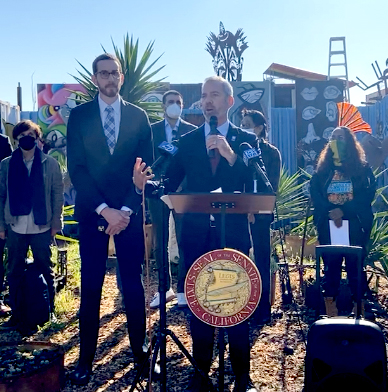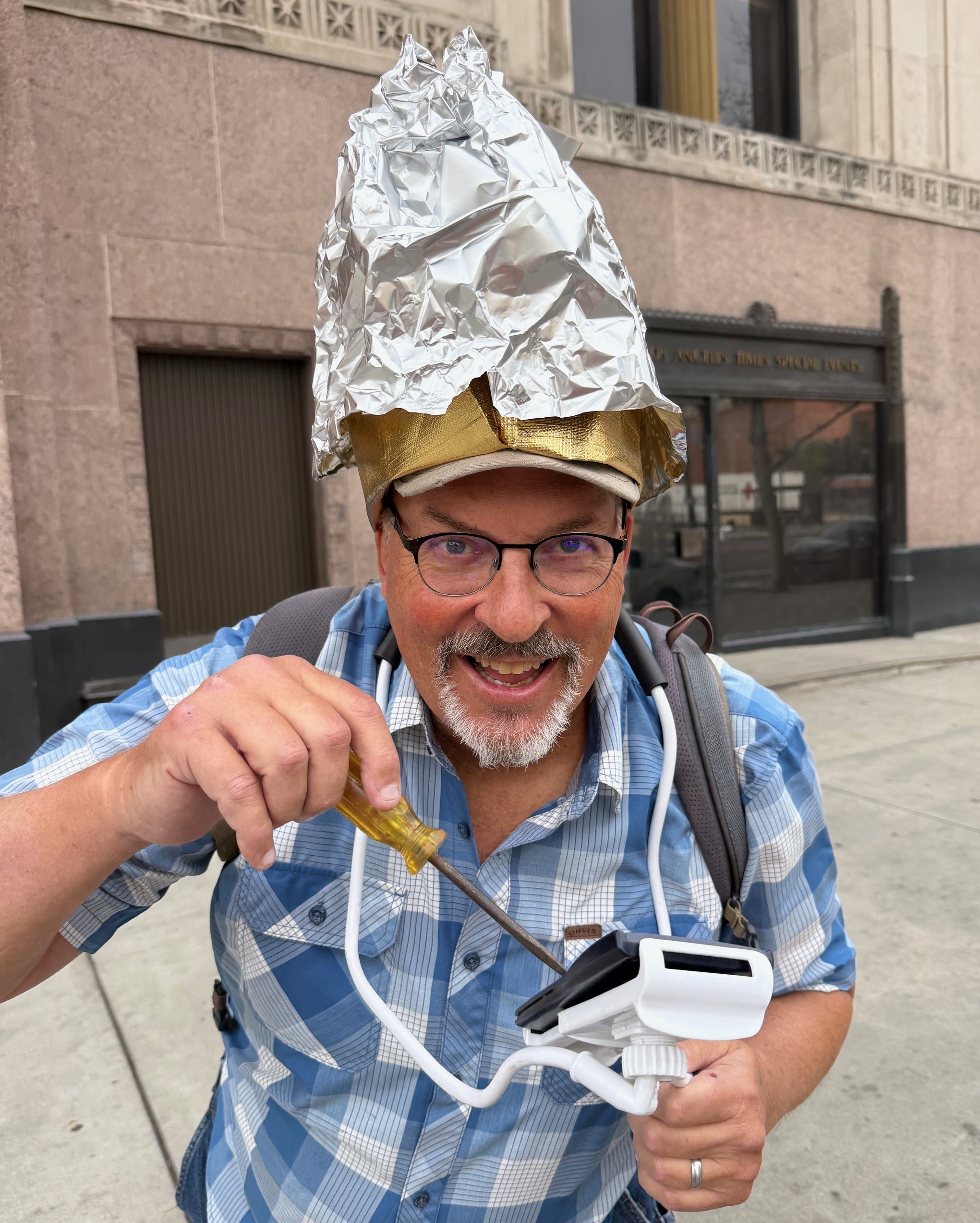Note: GJEL Accident Attorneys regularly sponsors coverage on Streetsblog San Francisco and Streetsblog California. Unless noted in the story, GJEL Accident Attorneys is not consulted for the content or editorial direction of the sponsored content.
On Friday, Senator Scott Wiener (D-San Francisco) introduced S.B. 922, a bill that would exempt environmentally-friendly transportation projects from lengthy environmental review.
Basically, the bill acknowledges that the climate and environmental benefits of sustainable transportation, including biking, walking, and transit are clear and obvious, and do not need a two-hundred-page document to explain that.
The California Environmental Quality Act provides an important avenue for the public to provide feedback on making projects better, but unfortunately CEQA is frequently used to stop good projects. One example was the four-year hiatus during which San Francisco was not allowed to put in so much as a bike rack because one gadfly and his lawyer argued that the Bike Plan needed to include a lengthy, wasteful Environmental Impact Statement.
S.B. 922 makes permanent the CEQA exemption allowed under S.B. 288, which passed in 2020. That exemption applies to active transportation plans, feasibility studies for active transportation, and bicycle, pedestrian, and transit projects. They include bicycle parking, signal timing, wayfinding, transit prioritization projects, pedestrian and bicycle facilities, or bus rapid transit, bus, or light rail services including dedicated transit lanes, transit queue jump lanes, high-occupancy vehicle lanes, transit stop boarding islands, and pedestrian improvements such as widening sidewalks and adding pedestrian refuge islands.
The new bill adds carpool lanes to the list of projects granted CEQA streamlining, but only those that convert existing lanes to high-occupancy vehicle lanes - not ones that add new lanes.
Senator Wiener, at a press conference in San Francisco announcing the bill, said S.B. 922 "is tightly crafted so it applies only to very specific projects. Any light rail or Bus Rapid Transit projects [offered this streamlining] would have to be on existing right of way - for example, along existing, abandoned trackline."
Another addition to the exemption list are parking policies or projects that reduce or eliminate minimum parking requirements, remove parking, or implement transportation demand management requirements.
Projects over a certain size - that cost over $100 million - would also have to comply with rules requiring transparency and racial equity. For example, a business case for the project would have to be presented that includes the rationale for the project, what problem it is setting out to solve, and what other options might achieve those objectives. Larger projects would also be required to conduct a racial equity analysis and an analysis of residential displacement which presents strategies to avoid displacement.
S.B. 288 has already benefited a number of communities by speeding up safety projects that otherwise could still be stuck in the CEQA process. Senator Wiener highlighted a busway in Salinas, dedicated bus and bike lanes throughout Culver City, and electric bus charging infrastructure installed by the L.A. City Transportation Department (LADOT) as examples of recent successful uses of the bill. In addition, bicycle and pedestrian safety projects as well as HOV and bus-only lanes in San Francisco benefited from S.B. 288 exemptions.
"These are projects that are right now delivering safety," said San Francisco Municipal Transportation Agency (SMFTA) Director Jeff Tumlin at today's press conference. "Without S.B. 288, we would still be mired in bureaucratic processes."
The public engagement processes outlined in S.B. 922, said Tumlin, "are more effective than CEQA processes. They let whole communities be involved, rather than just people who can afford lawyers."
The press conference took place at a tiny park in the Bay View neighborhood of San Francisco, which the various officials and community organizers present referred to as "disconnected from the city" and "abandoned." In the last few years, Bay View has created a community transportation plan that includes traffic calming, traffic barriers, and similar safety treatments on the area's high-injury corridors.
S.B. 922 is needed to make sure those community-supported projects actually happen. Theo Ellington, a homeowner in Hunter's Point Shipyard, told the gathered media that "S.B. 922 cuts red tape and provides neighborhoods like Bayview/Hunters Point more equitable opportunities to streamline transit and infrastructure projects that are long overdue.”
For climate, for safety, for health, for the environment, and for economic reasons, "we need the infrastructure NOW," said Tilly Chang, director of the San Francisco County Transportation Authority. "We need projects that prioritize efficient modes and maximize transit reliability NOW - not after seven years of environmental processing."







